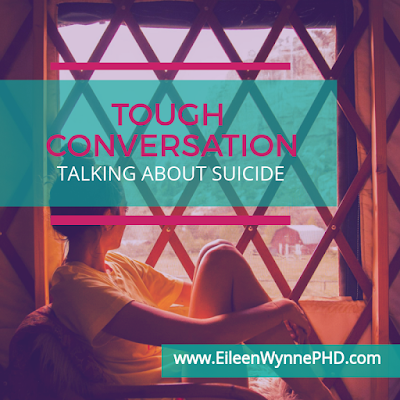What Is Preoccupied Attachment
Attachment and companionship are two crucial human needs. It shapes our interactions with others and how we see ourselves. As we age, companionship becomes an integral part of our lives.
Yet, for many, their personal and intimate relationships are marred by anxious preoccupied - a form of anxious attachment characterized by insecurity, clinginess, and constant worrying about being abandoned or rejected.
Those who are anxiously preoccupied often have difficulty trusting their partner and tend to be jealous and possessive. They may also have trouble controlling their emotions and can become easily overwhelmed by them. These overwhelming feelings can lead to conflict and arguments within the relationship.
For college students and young professionals, anxious preoccupied can manifest in a struggle to keep and maintain healthy and supportive relationships.
The constant worry about rejection or abandonment can lead to unhealthy behaviors such as clinginess, jealousy, and possessiveness. These behaviors can push away the very people we are trying to keep close to, exacerbating our feelings of insecurity and loneliness.
There is hope if you find yourself in an anxious preoccupied pattern. Read on to learn more about this attachment style and how you can work to change it.
What Causes Preoccupied Attachment?

Many factors can contribute to anxious preoccupied. Early childhood experiences, such as having an emotionally unavailable or absent parent, can lead to feelings of insecurity and anxiety about being abandoned.
Other life experiences, such as a divorce or the death of a loved one, can also trigger anxiously preoccupied. These experiences can cause us to doubt our worthiness of love and companionship, leading us to believe that we are not worthy of being loved or that others will abandon us if we are not perfect.
Perfectionism is often a symptom of anxious preoccupation. We may feel like we must be perfect to be loved and accepted. This can lead to unhealthy behaviors, such as people-pleasing and self-sacrificing, in an attempt to keep others close to us.
Other symptoms that may be associated with anxious preoccupied include:
Difficulty trusting others: Because we do not feel secure in our relationships, we may find it difficult to trust others. This can make us suspicious of those closest to us and constantly question their motives.
Jealousy and possessiveness: We may be jealous of the attention our partner gives to others or the time they spend away from us. We may also be possessive of them, feeling like they belong to us and that we cannot bear the thought of them being with anyone else.
Emotional volatility: Our emotions may feel out of control, and we may find ourselves easily overwhelmed by them. We may have difficulty regulating our emotions, leading to arguments and conflict in our relationships.
Low self-esteem: Our feelings of insecurity can lead to low self-esteem and a negative view of ourselves. We may believe that we are not worthy of love or unlovable.
Anxiety and depression: The constant worry about rejection and abandonment can lead to anxiety and depression. These feelings can further fuel our unhealthy behaviors and make it challenging to maintain healthy and supportive relationships.
If you exhibit these symptoms, you may struggle with anxious preoccupied. But there is hope. With awareness and effort, you can work to change your attachment style.
Tips For Managing Preoccupied Attachment In Relationships
Understanding anxious preoccupied can be difficult, but it is essential to do so if you want to manage a relationship with someone who suffers from this condition. Here are some tips to help you:
1. Be aware of the signs that someone is suffering from anxious preoccupied.
First, learning about anxious preoccupation can help you be more aware of the signs that someone is struggling with this condition. If you can identify the symptoms, you can be more understanding and patient with them.
2. Work at honesty and genuine communication.
Clear and honest communication is essential when one or both partners struggle with anxious preoccupied. This can help build trust and provide a space for both of you to share your feelings and needs.
3. Avoid making assumptions.
When we are feeling insecure, it is easy to make assumptions about what our partner is thinking or feeling. But these assumptions can often be wrong and can lead to misunderstandings and conflict. Instead, try to ask your partner directly about their thoughts and feelings.
4. Be patient.
Making changes to our attachment style is not easy, and it takes time. So be patient with yourself and your partner as you both work on making progress.
5. Seek professional help.
If you are struggling to manage being anxiously preoccupied on your own, seek professional help. A psychotherapist can provide guidance and support as you work to improve your relationship. A licensed mental health professional can also provide a diagnosis and rule out other possible causes of the symptoms.
Find Hope With Dr. Wynne
If you are struggling with mental health issues, there is hope. Dr. Eileen Wynne LCSW helps young adults who are dealing with many different mental health issues. Contact her today to schedule a consultation and find out what options are available to you.
Mental health issues can be tough to deal with, but there are many resources available to help. Dr. Wynne is a qualified psychotherapist who can provide you with the support you need to get through these difficult times. As a Licensed Clinical Social Worker, she is familiar with a variety of mental health issues and can provide you with the help you need.
Dr. Wynne has worked with many clients across the New Orleans region who are struggling with mental health issues. She understands what you are going through and can offer guidance and support. Contact her today to schedule a consultation.
More articles about Relationships
Today’s culture is suffering from an epidemic that many feel, yet few recognize - loneliness and a lack of connection. Research continues to show that the majority of American adults identify as “isolated” or “lonely” in their daily lives, with few friends or close connections to call on when things are tough.
The explosion of dating apps and online dating platforms has completely changed the way people meet and connect. Rather than venturing out to public spaces and striking up a conversation with a stranger, people can now connect with others from the comfort of their homes - and in some cases, without even leaving their beds.
Attachment and companionship are two crucial human needs. It shapes our interactions with others and how we see ourselves. As we age, companionship becomes an integral part of our lives.
Yet, for many, their personal and intimate relationships are marred by anxious preoccupied - a form of anxious attachment characterized by insecurity, clinginess, and constant worrying about being abandoned or rejected.
Congratulations. You’re arriving at college in just a few days, and your world is about to explode with new experiences, ideas, friends and a few challenges as you settle into your new environment. Your freshman year is sure to be full of surprises and adjustments especially if you are sharing living space on or off-campus with others.
In our culture, a lot of attention is focused on the negative aspects of romance, love, and marriage. But today, in honor of Valentine’s Day, I’d like to celebrate great relationships and look at what keeps them going and growing. This post is about all the things that make being a part of a committed romantic relationship so rewarding.
We all know toxic people and we all know that they are dangerous to our emotional well being. They are the naysayers or dream killers in our lives who always seem to make us feel like we are not good enough or smart enough. The bottom line is that toxic people bring us down and make us feel bad about ourselves and our lives and choices more often than not.
Hooking up, especially under a veil of alcohol or drugs, obscures responsibility, causes psychological harm, and devalues the importance of meaningful relationships. Where there is no expectation of future contact or commitment once the deed has been done, there can be no expectation of emotional investment or shared responsibility should unwanted repercussions - pregnancy or STD, for example - arise.
It is often noted that men and women communicate and process emotions differently. If we recognize, appreciate, and embrace differences, it can help us have more satisfying relationships. Let’s break down a few of the key differences in communication styles and look at how understanding them can improve our relationships. It is important to note that there are lots of exceptions to the generalizations below, I am simply attempting to shine a little light onto an issue that can cause conflict in many relationships.
Helen Fisher is a biological anthropologist who studies love, romance & personality and the chief scientific advisor at Match.com. She has written two books, books Anatomy of Love and Why We Love that look at the biology of who we choose to fall in love with. Recently, her Ted talk and NPR interview have given me some food for thought. I wanted to share some of what I have learned with you.
In my New Orleans practice, I work with parents, teens, and families who find themselves facing a mental health crossroads. Some come with concerns about depression, anxiety, and age-related stressors. Others come with dire worries about self-harm and suicidal thoughts. Regardless of the specific issue, one thing is clear: talking about mental health with teens can be incredibly difficult.
For many, the idea of going to therapy or counseling can be a bit… intimidating. Despite the many benefits they know come with therapy, people often avoid seeking professional help. One of the most common reasons for this hesitation is a fear of the unknown - not knowing what to expect from the therapy experience.
Loneliness is a growing problem among young adults and career professionals, and as a therapist and life coach here in New Orleans, I see it every day in my practice. The COVID-19 pandemic has only made things worse, leaving many people feeling isolated and disconnected from others.
As a therapist working with young professionals and college students in New Orleans, I've seen firsthand the immense pressure many of my clients face to excel in their personal and professional lives. And if there’s one concept I’m finding popping up more and more, it’s emotional intelligence (EQ) – especially within self-improvement and professional development.
Do you find yourself constantly saying "yes" to requests from others, even when you genuinely want to say "no"?
Do you go out of your way to accommodate people, forgetting your own needs and desires in the process?
If this sounds familiar, you may exhibit people-pleasing behaviors.
You may not realize it, but you do talk to yourself. All the time, actually. And those words you say to yourself profoundly affect your mindset, self-belief, and ability to achieve your goals. The stream of self-talk running through your mind impacts your emotions, your outlook, and even your abilities.
That's why, as a licensed psychotherapist with my Ph.D. who has counseled countless young adults and professionals over my 25+ year career, I'm an enthusiastic proponent of positive daily affirmations.
In my work with clients, dreams often come up as a window into their inner worlds. My clients share dreams that seem bizarre or intense and wonder what meaning they could possibly have.
I believe everyone has the right to understand their personal dreams and use them as a positive force in their lives. Let’s look at dreams – why they happen, what they mean, and how best to use them – so that everyone can benefit from this underestimated human experience.
Every week, I meet with individuals in my New Orleans therapy practice who mention their struggles with social anxiety disorder. Although people often use the term “social anxiety” interchangeably with shyness, there is a world of difference between these two states.
Unlike shyness, which may be temporary, mild, and easily managed, social anxiety disorder (SAD) is an intense fear of being judged negatively or embarrassed in front of others. Sometimes, it can become a phobia, preventing you from engaging with others publicly or privately.
An interesting movement in therapy has arisen in the past few decades, driven by Dr. Martin Seligman. Known as “positive psychology,” Seligman’s philosophy resonated deeply with me. Instead of lingering on flaws and failings, this approach celebrates our strengths, potential, and the many facets contributing to a fulfilling life.
Self-awareness serves as a guiding light in our pursuit of personal growth and achievement. Yet, we often struggle to remain mindful, clear and focused when our goals seem far away. This is where mastering self-awareness comes in.
As a therapist and counselor in New Orleans, I work with individuals who desire to unlock their inner potential and achieve their goals daily. Through my practice, I have found that self-awareness is the foundation for building meaningful, successful lives.
If you are in a relationship - be it dating, marriage, family, or platonic - with a narcissist, you may find yourself in a manipulative situation that is difficult to escape.
A narcissist - someone who exhibits a grandiose sense of self-importance, needs excessive admiration, and has an exaggerated sense of entitlement - often uses various techniques to manipulate the people around them.
Low self-esteem can be incredibly damaging to our mental and physical health, as it can lead to feelings of depression, anxiety, low motivation, insecurity in relationships and work settings, as well as a lack of resilience in the face of life’s challenges.
For many college graduates, the future is bright with hopes of a successful career, financial security, and a jumpstart on life. But for some, post-graduate depression can be an unwelcome surprise.
Navigating life during your twenties can be both exciting and overwhelming. From graduating college to entering the workforce, starting new relationships to managing finances – this decade is full of potential and potential pitfalls. When faced with these new experiences, it’s essential to protect your heart and mind.
Today’s culture is suffering from an epidemic that many feel, yet few recognize - loneliness and a lack of connection. Research continues to show that the majority of American adults identify as “isolated” or “lonely” in their daily lives, with few friends or close connections to call on when things are tough.
The explosion of dating apps and online dating platforms has completely changed the way people meet and connect. Rather than venturing out to public spaces and striking up a conversation with a stranger, people can now connect with others from the comfort of their homes - and in some cases, without even leaving their beds.
We’ve all seen the headlines about burnout among millennials – whether due to a demanding work culture, high expectations set by society, or both.
Young professionals, in particular, feel pressure to reach their goals while dealing with everyday anxieties and stress. Many are turning to therapy as a way to cope and improve their mental health.
Attachment and companionship are two crucial human needs. It shapes our interactions with others and how we see ourselves. As we age, companionship becomes an integral part of our lives.
Yet, for many, their personal and intimate relationships are marred by anxious preoccupied - a form of anxious attachment characterized by insecurity, clinginess, and constant worrying about being abandoned or rejected.
Who said your career has to be all about climbing the corporate ladder? In fact, your hobbies can play a big role in helping you rise to the top - in work and in life.
In today's hyper-competitive workforce, young professionals are finding that their first career moves are resulting in high levels of burnout.
For many college students, this school year will be unlike any other.
Many students have to adjust to a new reality with the ongoing pandemic - from attending online classes to living away from home for the first time. All of these changes can be tough to manage and can take a toll on your mental health.
Congratulations. You’re arriving at college in just a few days, and your world is about to explode with new experiences, ideas, friends and a few challenges as you settle into your new environment. Your freshman year is sure to be full of surprises and adjustments especially if you are sharing living space on or off-campus with others.
As colleges and universities design and implement new safety procedures, COVID-19 may escalate one of the most frequent challenges college students face—isolation. Many college students struggle with figuring out where they “fit in” under normal circumstances. With social distancing and a limit on social gatherings, there is the potential for students to feel even more isolated during this time.
Everyone experiences freshman year in a different way. There is a lot to be excited about when going away to college—making new friends, being more independent, becoming involved in a community, and discovering new passions. However, many students also often wonder why no one told them how difficult the first semester of college might be. Managing unrealistic expectations is one challenge many students encounter during the first year of college, but there are many more.
Preparing for college is an exciting time. Students typically look forward to beginning a new chapter of their lives. With all of this energy spent looking forward, you naturally develop certain expectations. When the reality of an experience does not match an expectation, the gap between the expectation and reality can be difficult to handle.
Recent high profile suicides and the popularity of the show 13 Reasons Why have made it apparent that this is an issue that is increasingly commonplace and yet incredibly misunderstood. The CDC reports that in the United States, deaths by suicide have been increasing over the last decade. Suicide is now one of the top five causes of death for teenagers 15-19 years old.
Most people have heard of seasonal affective disorder, commonly referred to as SAD. If you have never lived in a place where there is a distinct winter season, you may think of the disorder as something difficult to understand, but the truth is that about 4-6% of people suffer from wintertime depression.
You know a confident person when you see one. They are cool and self-assured. Confidence is the belief that you can do what you set out to do. It is a trust in the self and certainty in one's abilities. It may seem like a skill that is arbitrarily handed out to some and not to others, but in truth, anyone can become more confident.
In our culture, a lot of attention is focused on the negative aspects of romance, love, and marriage. But today, in honor of Valentine’s Day, I’d like to celebrate great relationships and look at what keeps them going and growing. This post is about all the things that make being a part of a committed romantic relationship so rewarding.
The #MeToo movement has captured national attention by making front page what has long been a dark secret. This movement has been a catalyst for many eye-opening and heartbreaking conversations. It has been sobering to read and hear the confessions of long-kept secrets from so many women in the public eye and our personal lives.
We all know toxic people and we all know that they are dangerous to our emotional well being. They are the naysayers or dream killers in our lives who always seem to make us feel like we are not good enough or smart enough. The bottom line is that toxic people bring us down and make us feel bad about ourselves and our lives and choices more often than not.

































